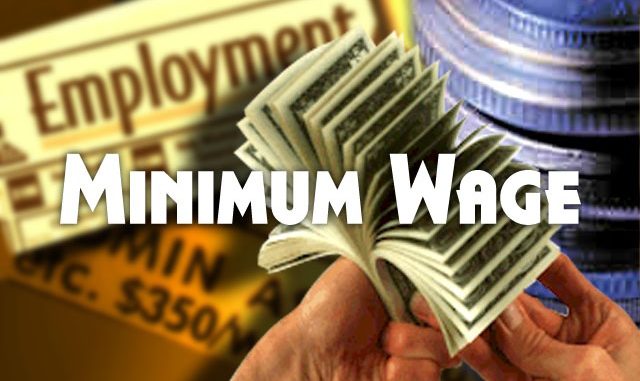
With the inauguration of a National Minimum Wage Committee on Monday, November 27, President Muhammadu Buhari has formally set in motion the process for the fixing of a new national minimum wage. The 30-man tripartite committee which is headed by former Head of Service, Amal Pepple, has representation from the public and private sectors, as well as organised labour and other stakeholders.
International labour laws prescribe a periodic review of the national minimum wage for all affiliate countries, and as the president acknowledged at the inauguration of the committee, Nigeria has been in breach of the provision. This has led to sustained pressure from the labour unions and their affiliates on successive governments for an immediate review of the national wage. The current national minimum wage is N18,000.
The amount, which was fixed many years ago, has become grossly inadequate because of spiralling inflation and the general economic downturn. As the Nigeria Labour Congress (NLC) President, Ayuba Wabba, has recalled, the US dollar exchanged for about N110 at the time the current national minimum wage was fixed. Today, the exchange rate at the interbank window is N305/ 1USD. This has made the need for an urgent review of the minimum wage self-evident and we congratulate the government for finding the courage to take the first concrete step towards arriving at a new minimum wage for the country.
A minimum wage for the country, we must emphasise, means the minimum wage any worker, be it in the public or private sector, should be paid in the country. Different tiers of government and private organisations can pay more, depending on their capabilities and priorities. This is why the warning by the president to the review committee that they should come up with a minimum wage that all tiers of government and relevant stakeholders can afford is very important.
Affordability is important, so also is the dignity of the worker. It is a delicate tightrope that the committee has to walk and it must discharge the assignment expeditiously. The committee has a very important assignment to perform, so its members must do their best to arrive at an agreeable resolution in the best interest of all stakeholders.
We note that there has always been reluctance to pay the fixed minimum wage. The state and local governments, and the private sector operators, have been most culpable. One of the reasons for the tardy implementation of the wage may be the lack of proper consultation with all the stakeholders. The government, in the past, never got a consensus on what the minimum wage should be. But, one thing that is clear is that the country has not always done well on this issue. In the U.S. for example, the minimum wage is presently set at $7.25/hour. Even in the sub-region, a number of our less-endowed sister countries pay higher minimum wages to their workers.
This is why those in the committee saddled with the important task of fixing a new national minimum wage must consider the plight of the average Nigerian worker and fix an amount that can be considered equitable. Paying a living wage to workers can guard against corruption that has decimated most sectors of our national life.
No matter the alternative welfare packages that government institutes as some critics of a raise of the minimum wage have canvassed, the truth remains that paying workers a living wage does a lot for their physical and psychological well-being. It can also go a long way to boost the workers’ productivity and the national ethos.
What is required in the end is the will of all employers of labour to pay the fixed wage. From our experience of serial default on this matter in the past, we know that the instinctive reaction of some employers would be to downsize.
We, however, enjoin them to look at the long term effects of a motivated workforce on their operations and the overall national economy, and resolve to pay the new minimum wage.
END

Be the first to comment